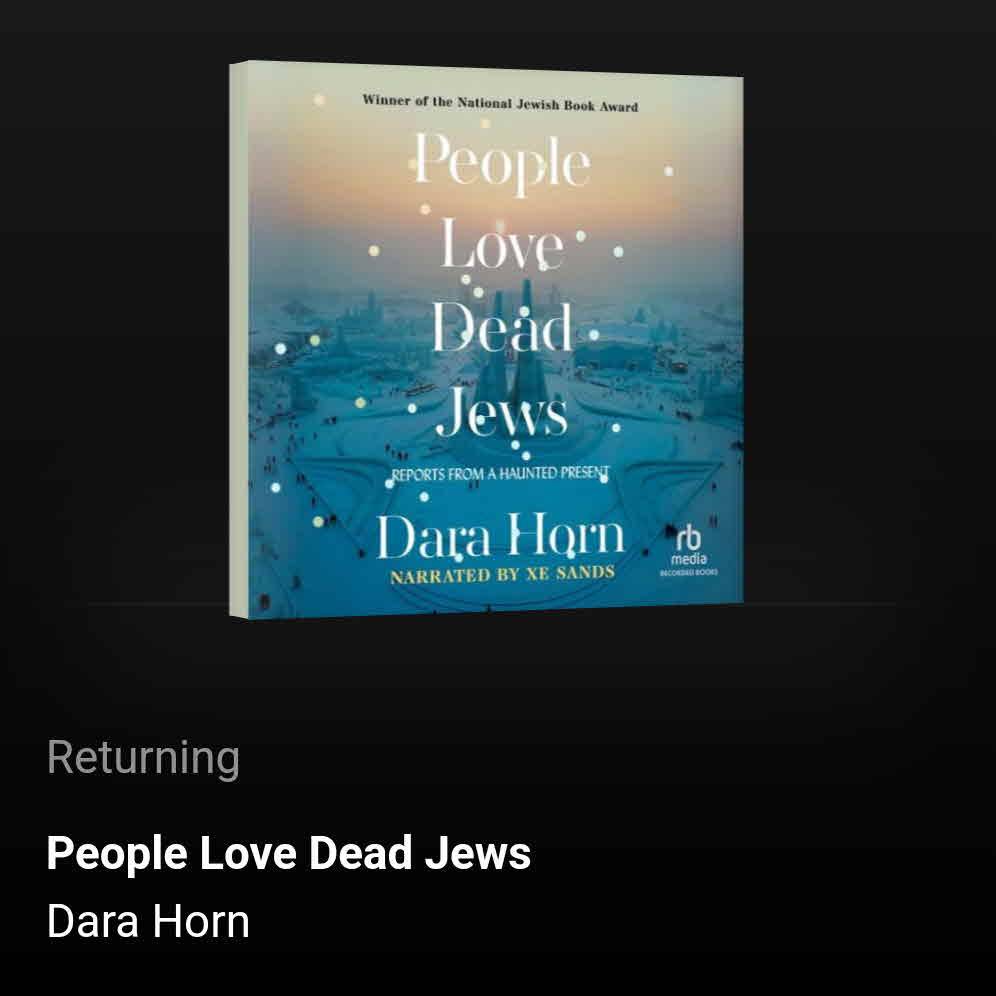
I am just not vibing with this narrator. I'll have to try again in print another time...

I am just not vibing with this narrator. I'll have to try again in print another time...
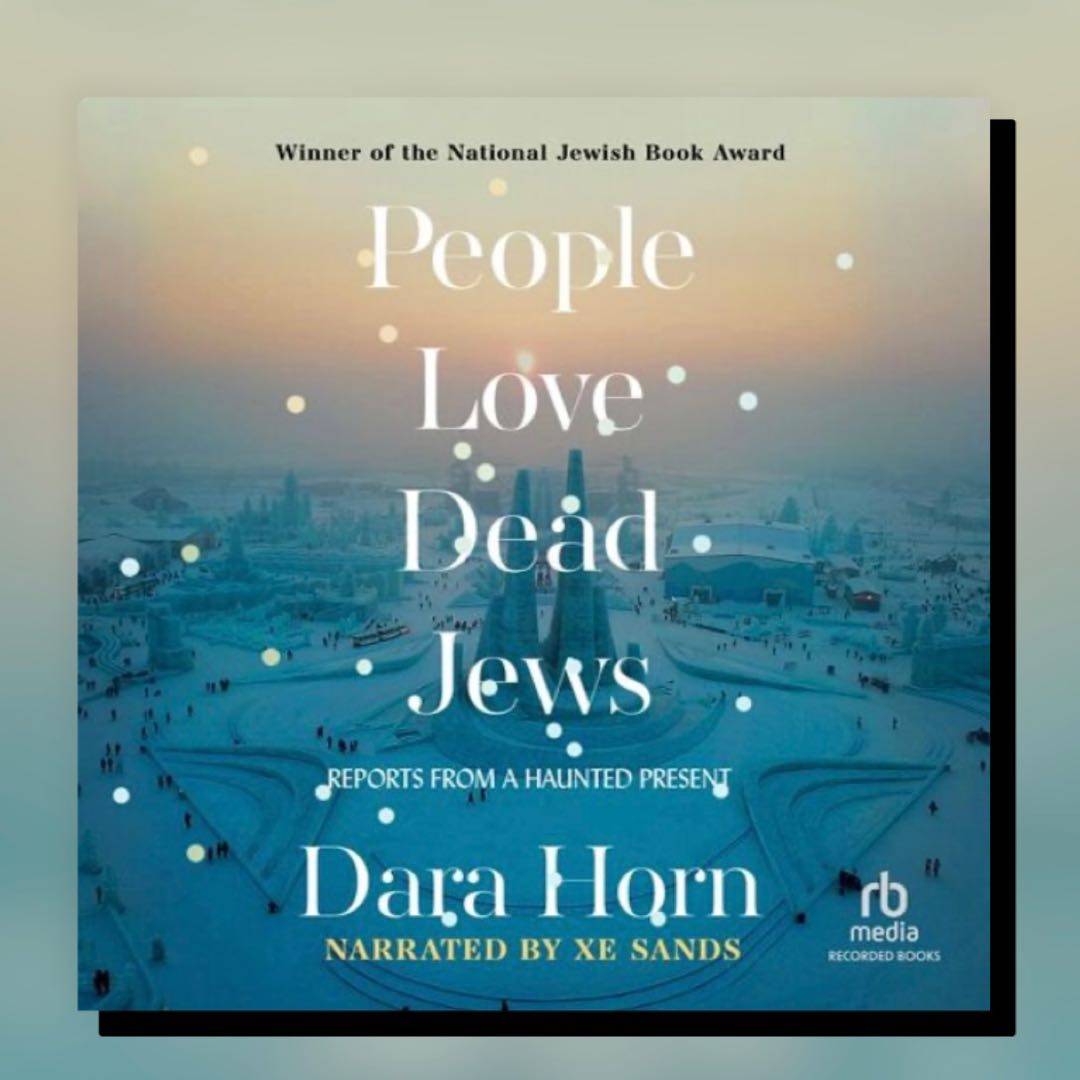
⭐️⭐️⭐️⭐️💫 Series of essays that make a compelling case for her thesis that people love dead Jews and stories of dead Jews more than they care about the lives of the living Jews. Learned a lot (e.g, that last name changes on arrival at Ellis Island is a myth) and thought about unlit I‘d never really had to confront as a non-Jew. I found the narration a little grating, but otherwise a definite pick.
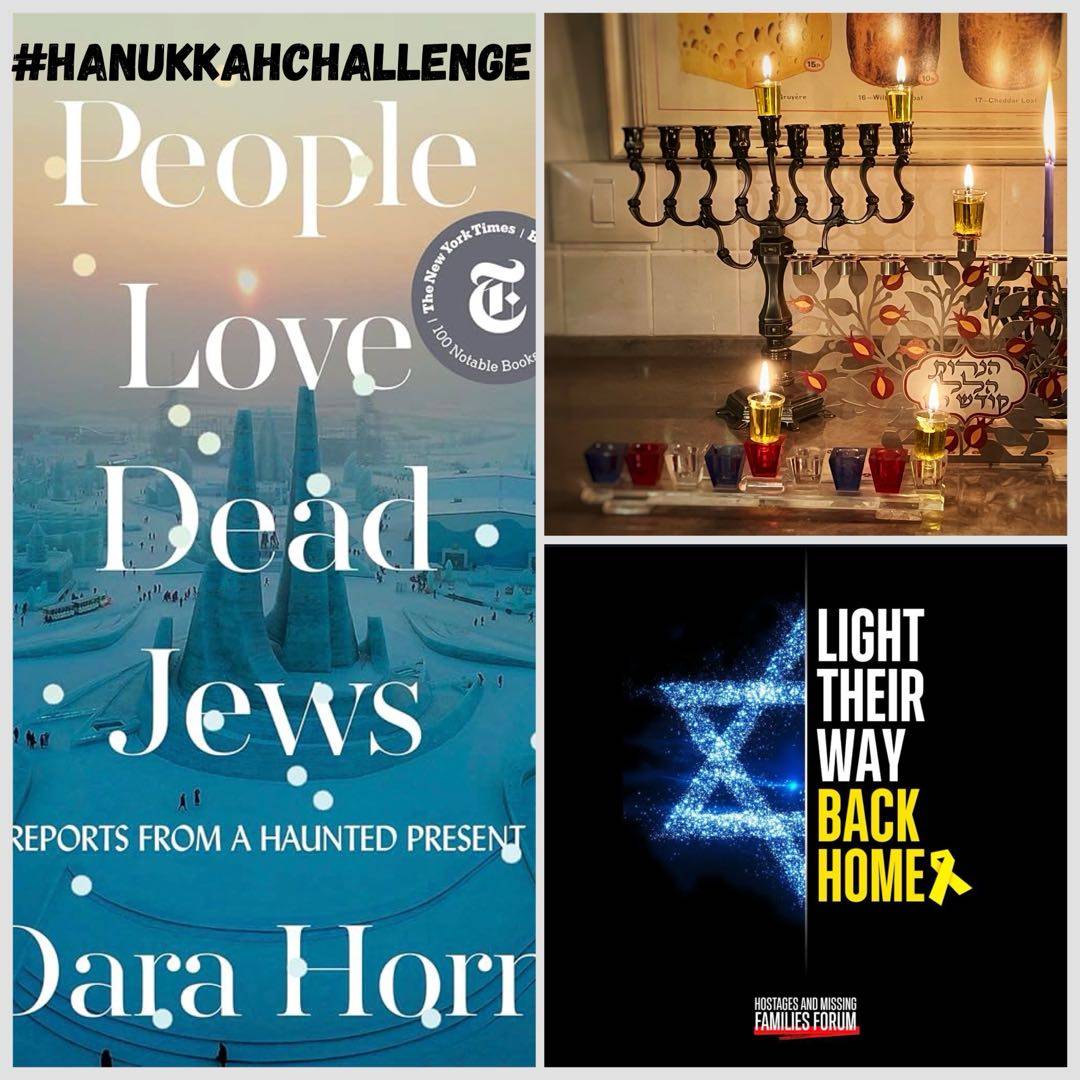
For the first candle of my #Hanukkahchallenge I‘ve picked a book that pushed me towards the idea of celebrating each Hanukkah day by writing about a book about a Jew or written by a Jew. I picked it because I hoped to find an answer to a question: why so many people tear down the portraits of Israeli hostages held in Gaza while respecting dead Holocaust victims. The book is well written, but I didn‘t like the answer #iamthatjew
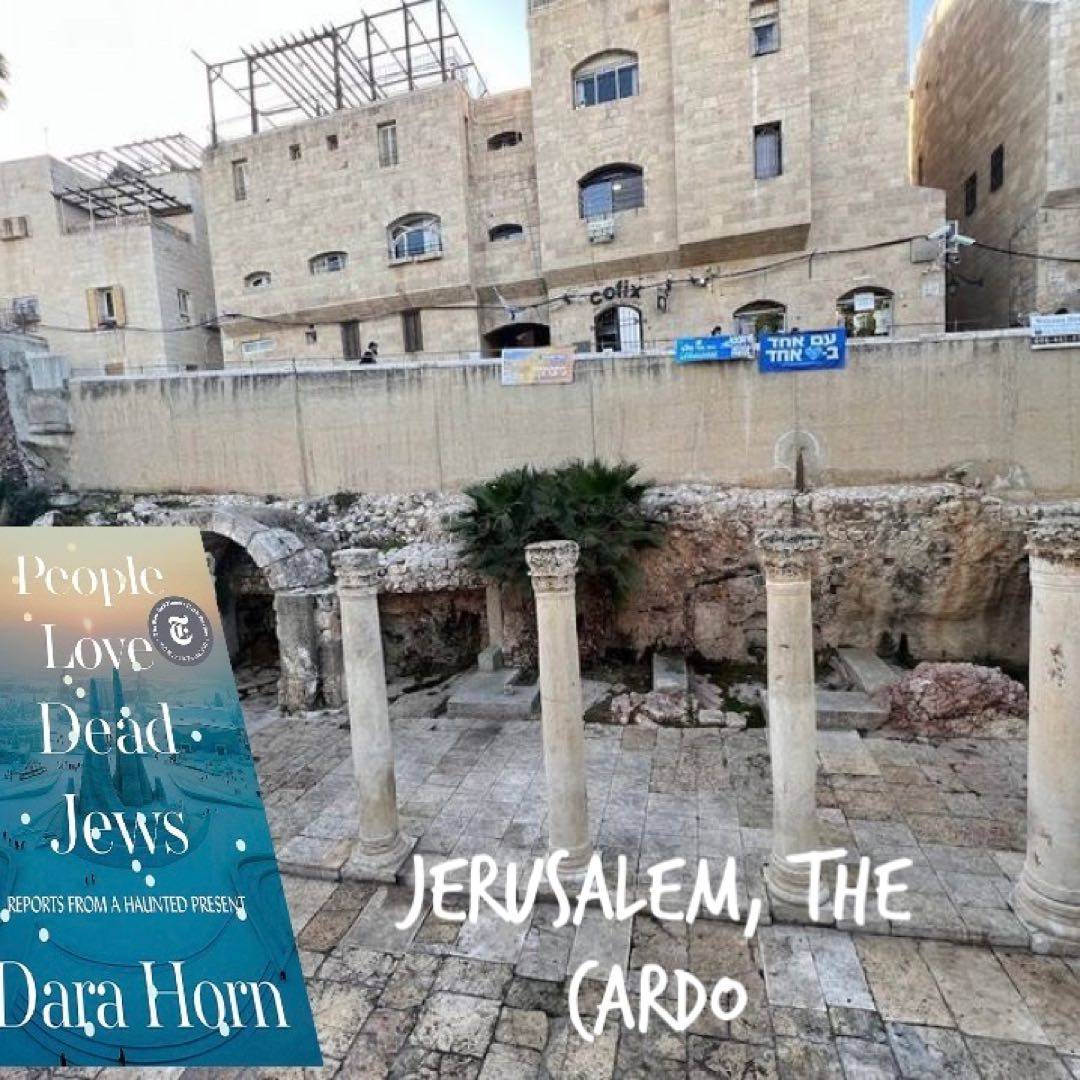
“The first time I entered Jerusalem‘s Old City, I walked down a flight of stairs that began on the current street level; at the bottom, I was stunned to step onto the paving stones from the street level during the Roman period, as though I had traveled through time instead of rock.”
Have you ever been there? Did you feel the time captured in stone? #told_by_a_woman #iamthatjew
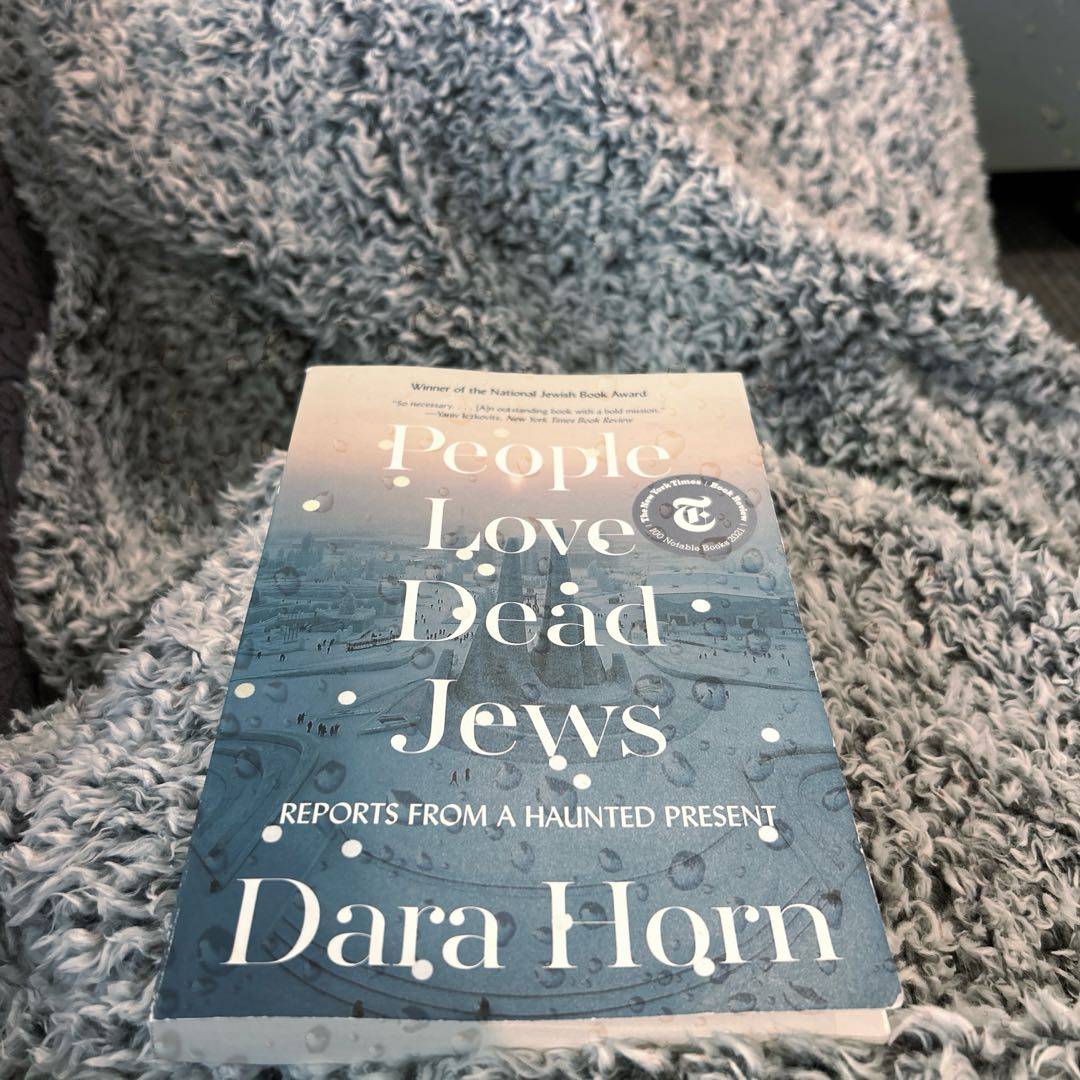
Amazing book. Very personable and personal, while still relating to an arc of issues. 10/10 one of my highest ratings yet.
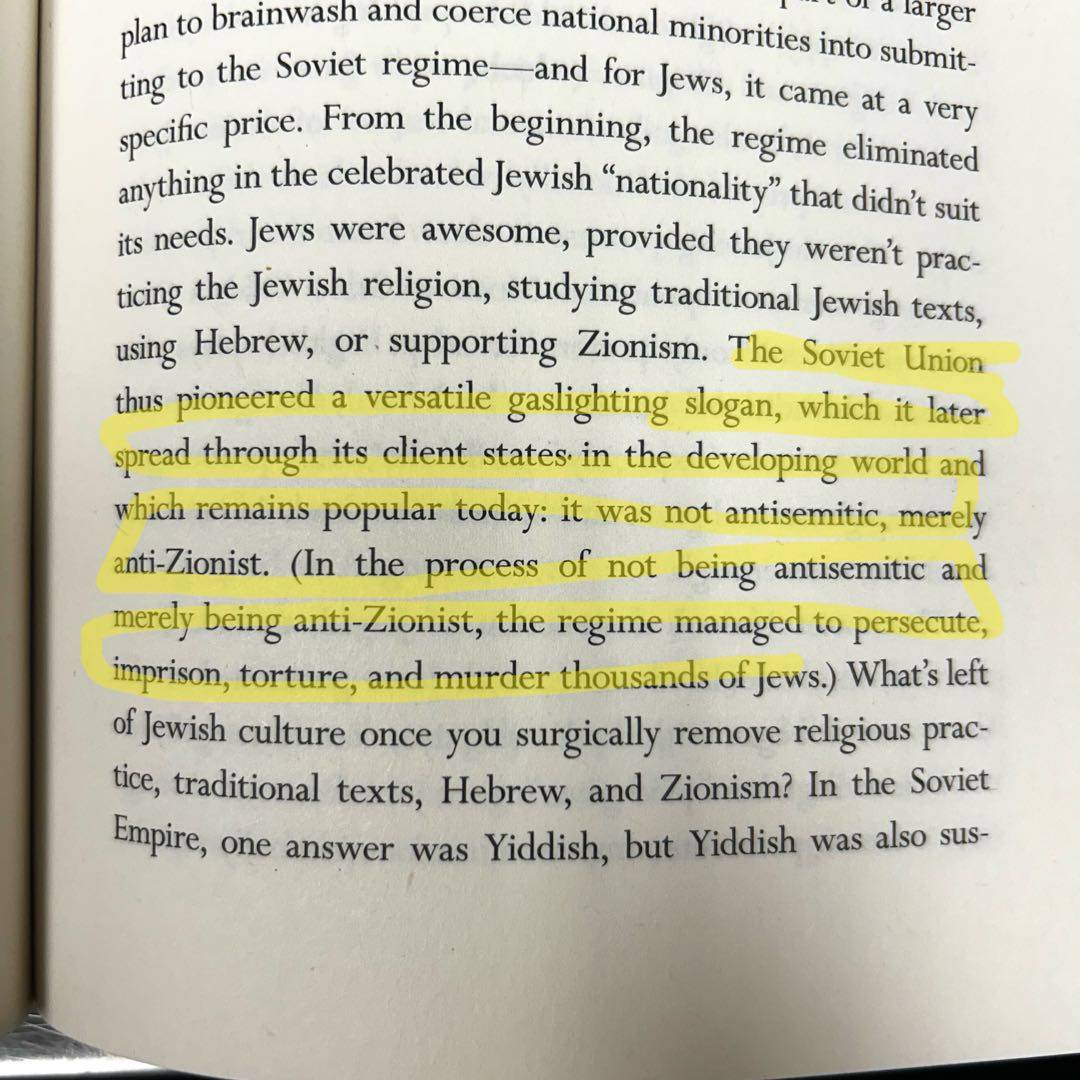
America: 2024
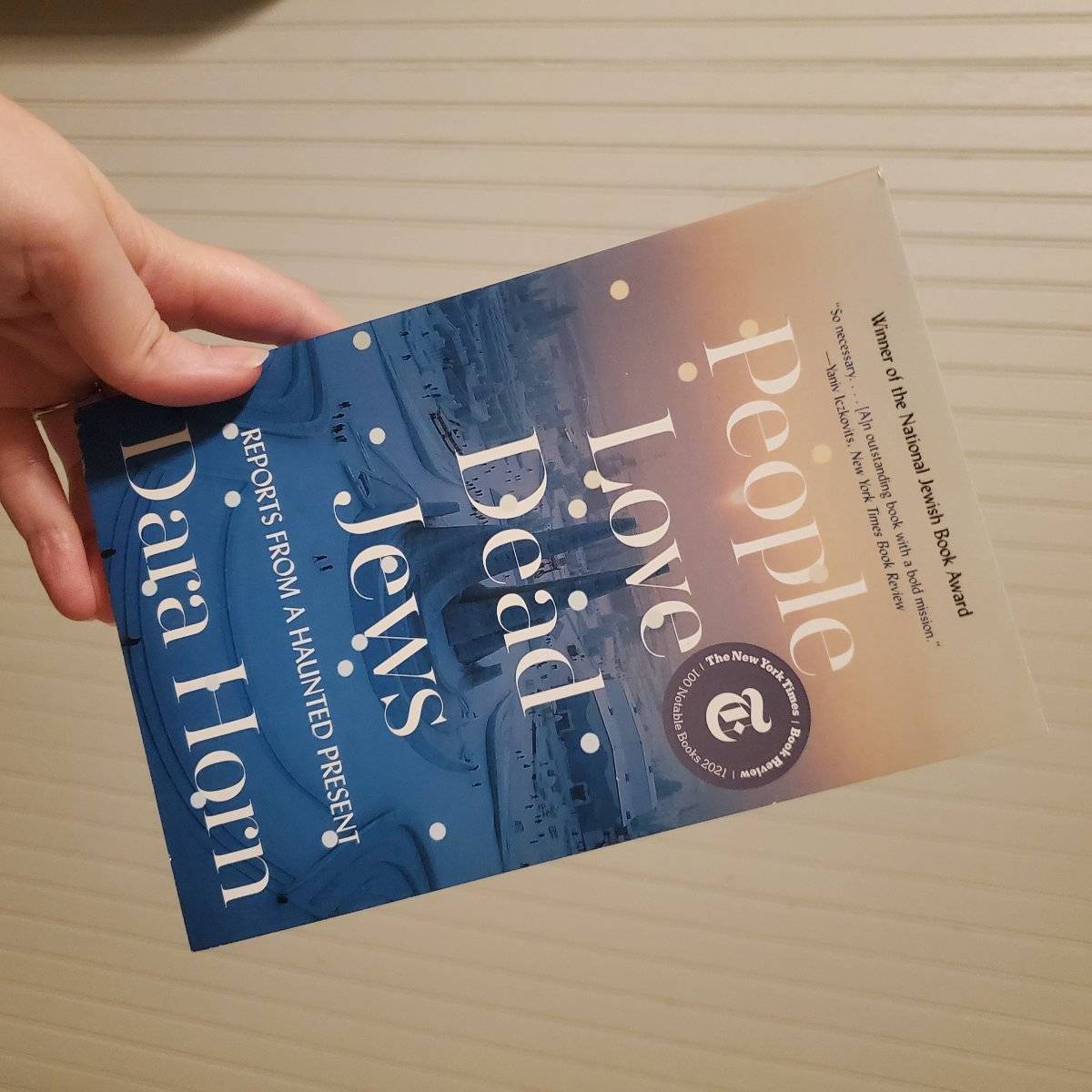
The truly terrifying rise in antisemitism is something we must all acknowledge and work against. The title, while definitely provocative, encompasses Horn's central thesis that historical, dead Jews are comfortable to reckon with and easy to mourn. Meanwhile the actual fates and daily struggles of living Jews creates a discomfort in non Jews. In each essay, a different form or aspect of antisemitism is examined; all are deeply important to explore
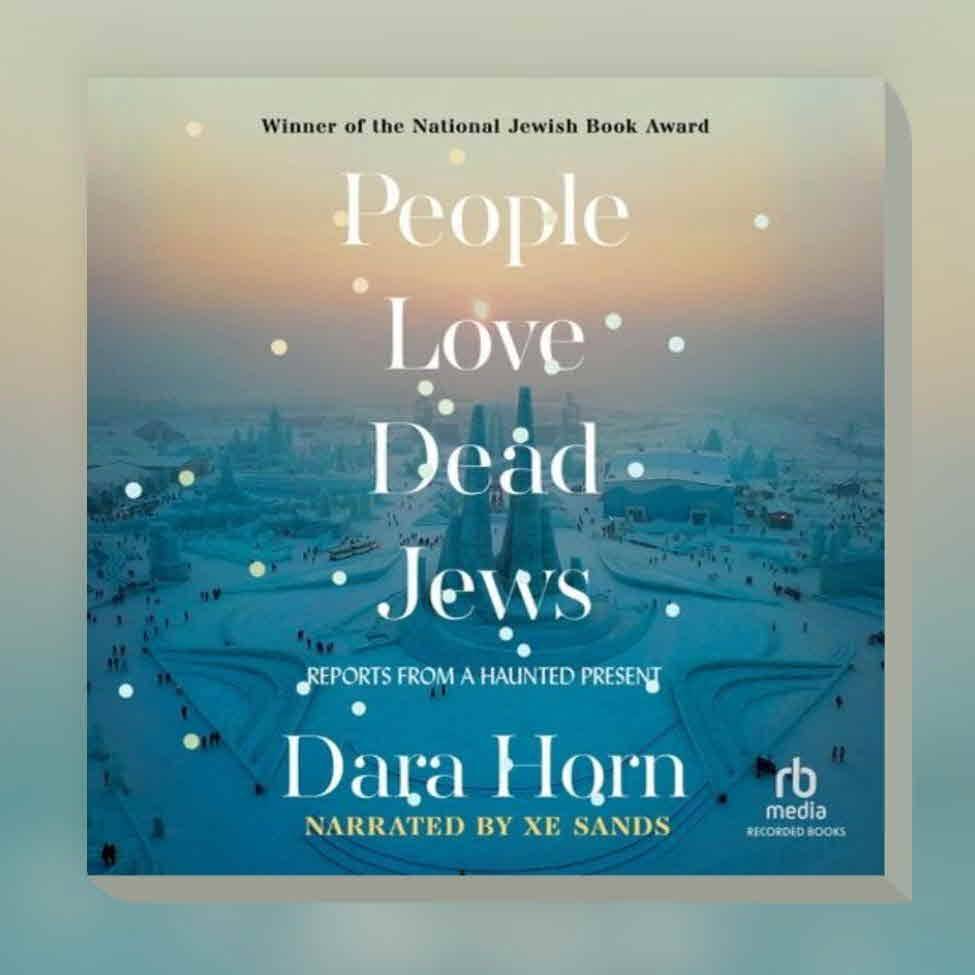
#auldlangspine @TheBookHippie @monalyisha
Late as always with finishing this challenge, but I thought this was a very good essay collection. Each confronts aspects of antisemitism in a variety of contexts. My two favorites were on bits of history that aren't that widely known (an early 20th century Russian Jewish community in freezing Harbin, China, and Varian Fry, a journalist who rescued famous artists being persecuted by the Nazis) 👇
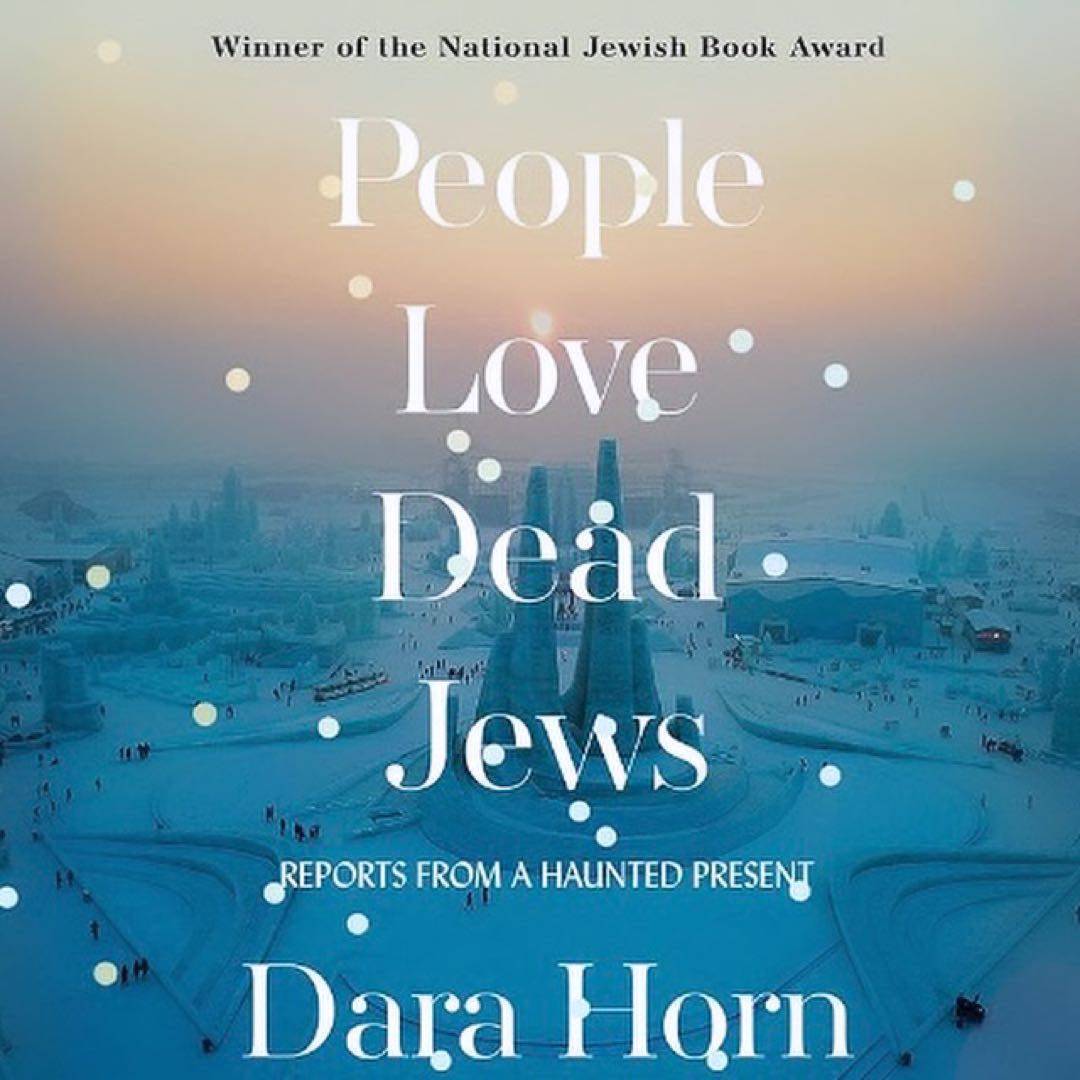
I recently posted my thoughts on a terrifying horror novel. I‘ve just finished reading a non-fiction book named “People Love Dead Jews: Reports from a Haunted Present” in an attempt to try and understand modern day antisemitism. Were my eyes opened. Both books got 5-Star ratings from me as they were equally intriguing and quite frightening. But in my heart, I know the great distinction between pretend scary and real-life scary. My soul aches.
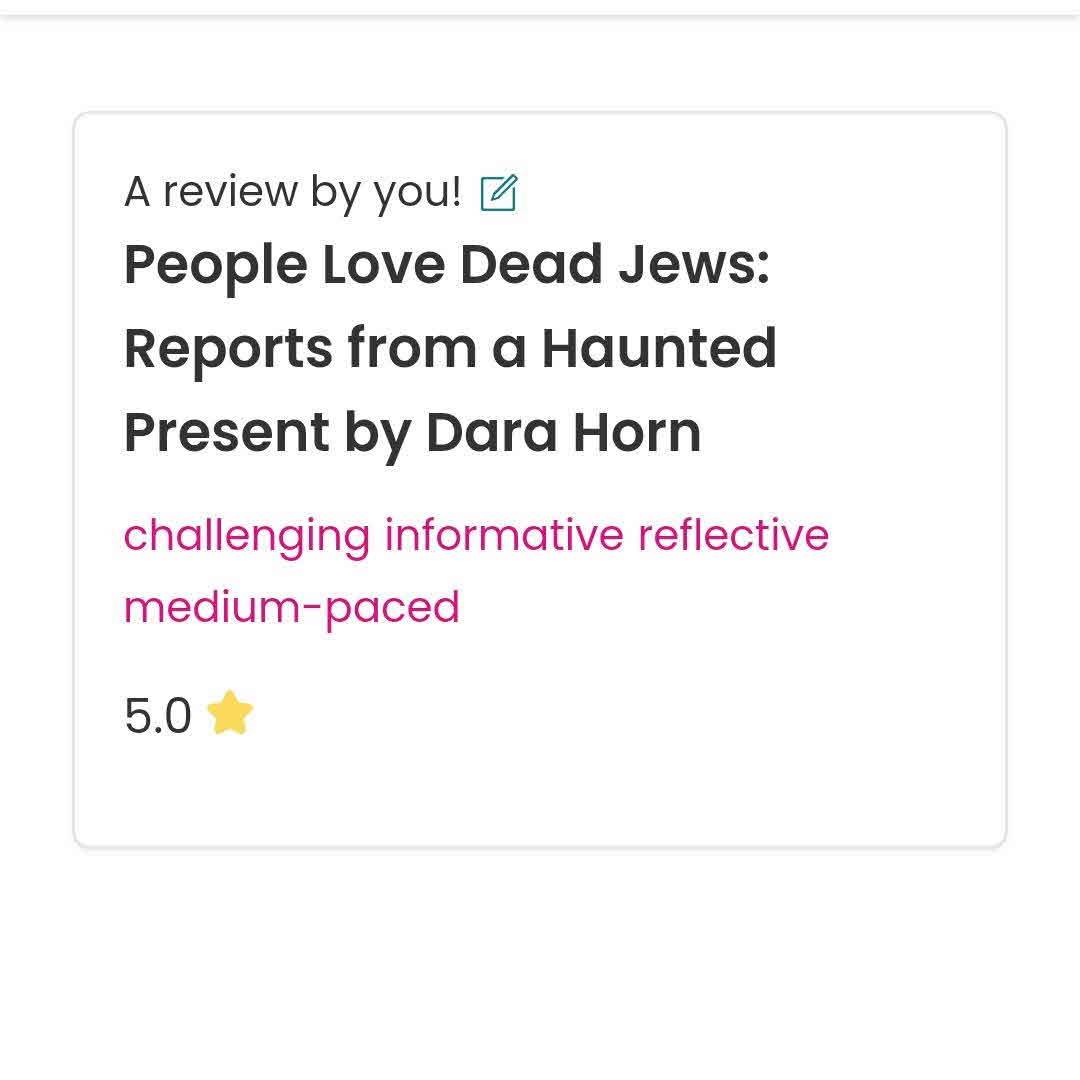
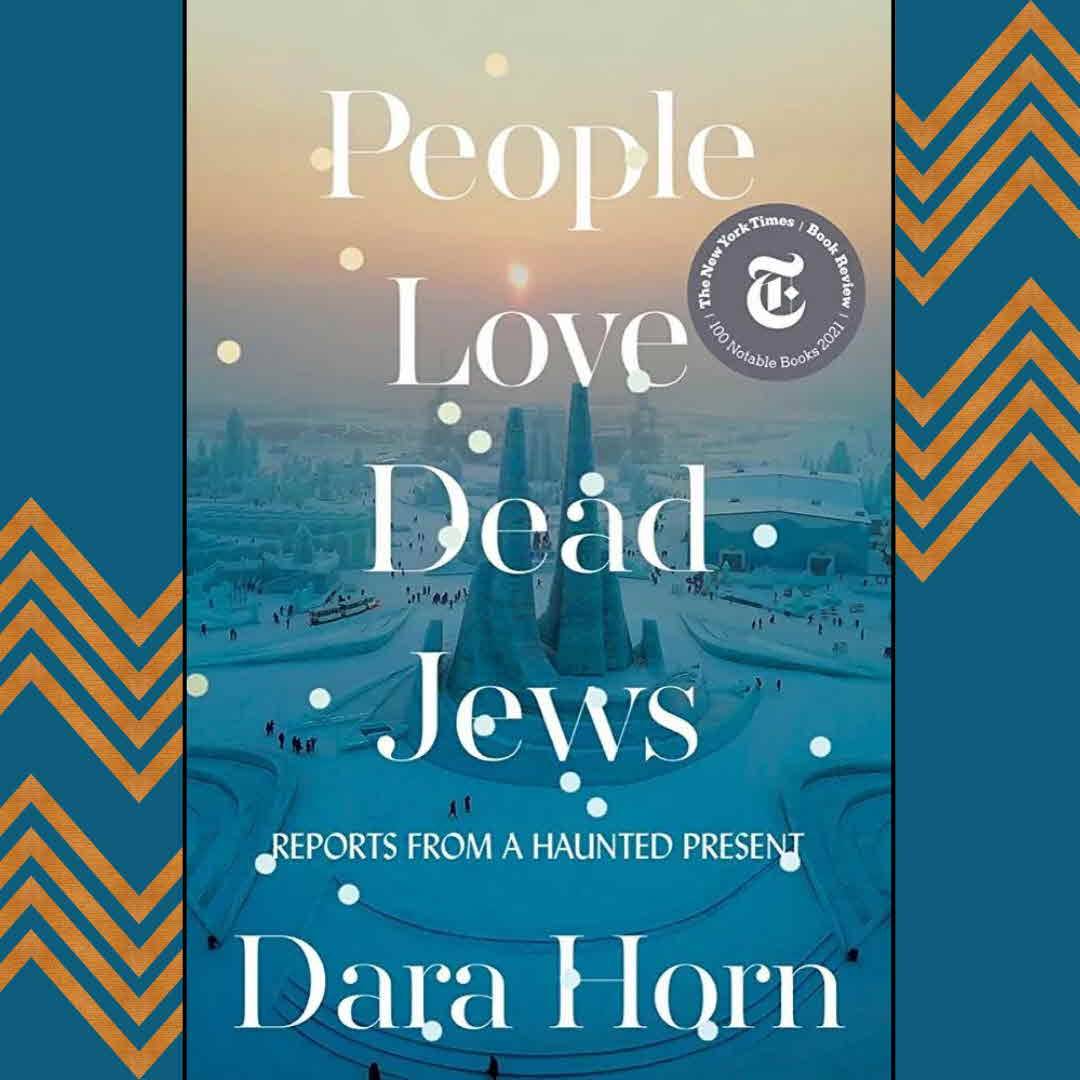
⭐️⭐️⭐️⭐️½
I learned a lot from this book, both from its wealth of historical details as well as from its reporting about the world today. However, the most shocking thing I learned was that according to a recent poll, two-thirds of American millennials could not identify what Auschwitz was. TWO-THIRDS. Clearly, there is much work to be done.
Highly recommend!
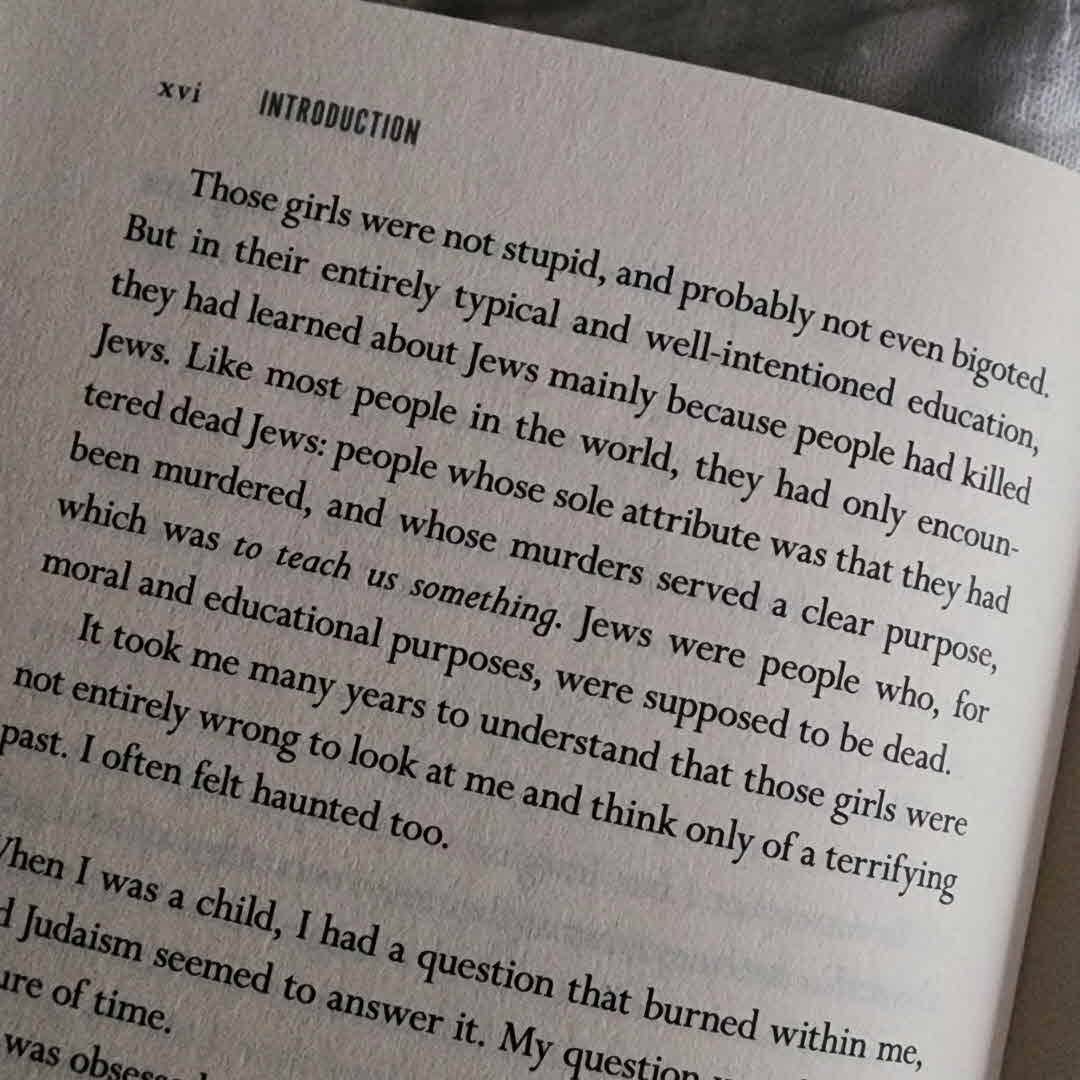
Started the tagged this book this morning. The Introduction alone is filled with gut punches like this paragraph and, from page xxi, "What, I asked, was the point of caring so much about how people died, if one cared so little about how they lived?"
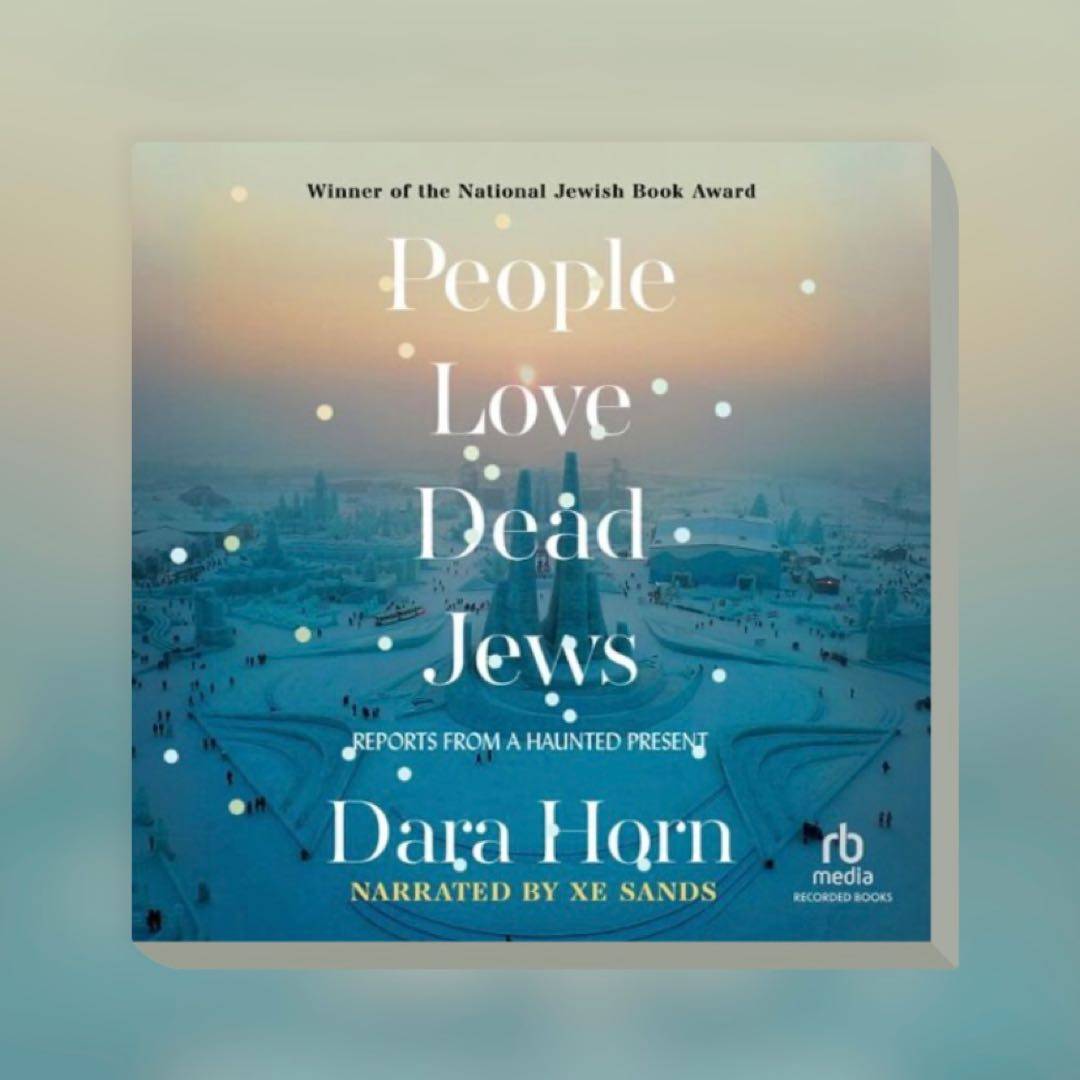
An incredibly thoughtful, impassioned exploration of the history of Jewish culture which focuses particularly on the consistently troubling ways that other cultures interact with Jewish culture. Horn explores this complex topic from a range of angles, across a broad stroke of different time periods and places around the world. I consider myself a fairly well-read Social Scientist, yet there was much to learn for me here.
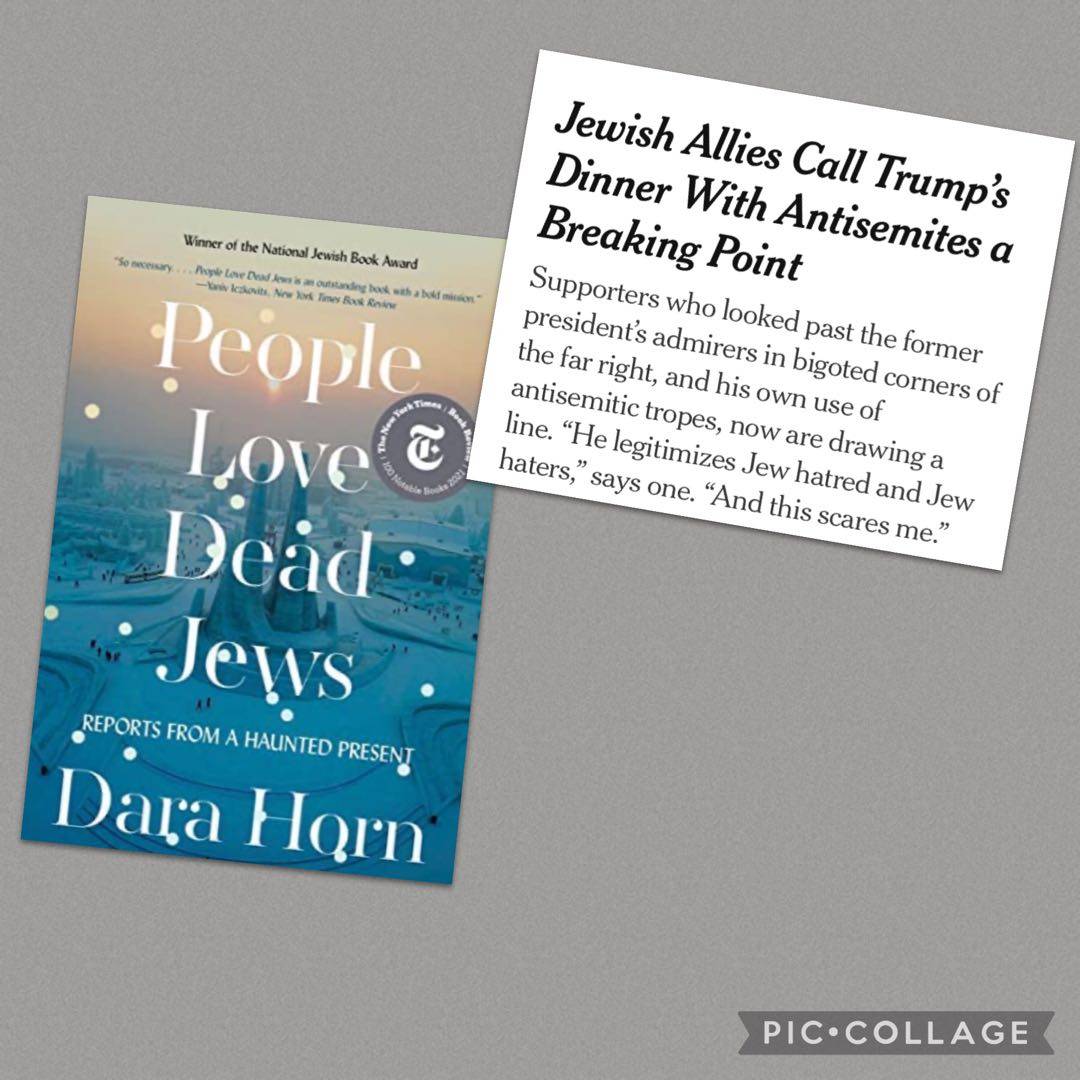
I‘m reading this book. This shows up today in the New York Times:
Jewish Allies Call Trump‘s Dinner With Antisemites a Breaking Point
https://www.nytimes.com/2022/11/28/us/politics/trump-kanye-west-nick-fuentes-ant...
#antisemitism #fighthate
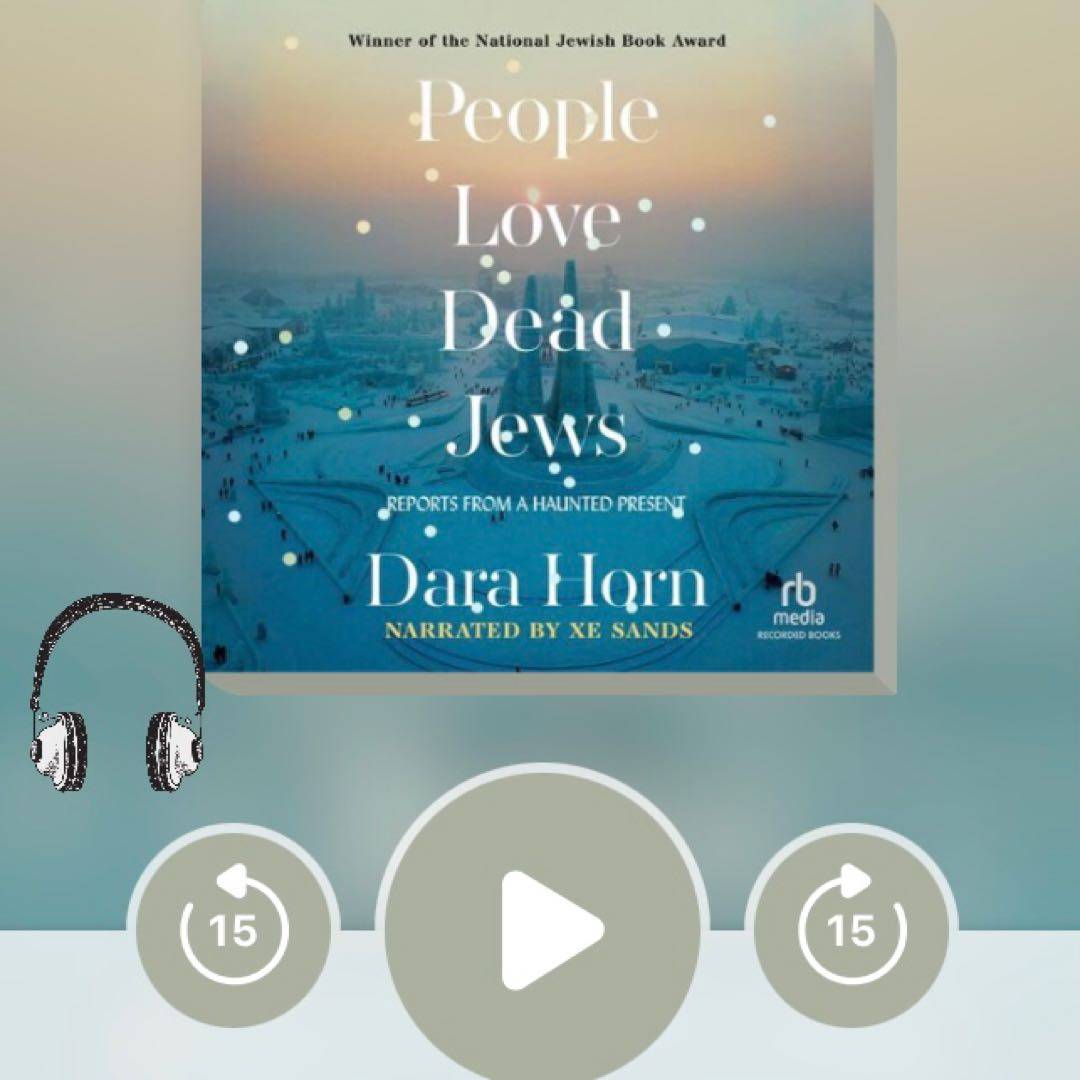
First line:
“Sometimes your body is someone else‘s haunted house.”
🤯
@Cinfhen Thanks for the recommendation!
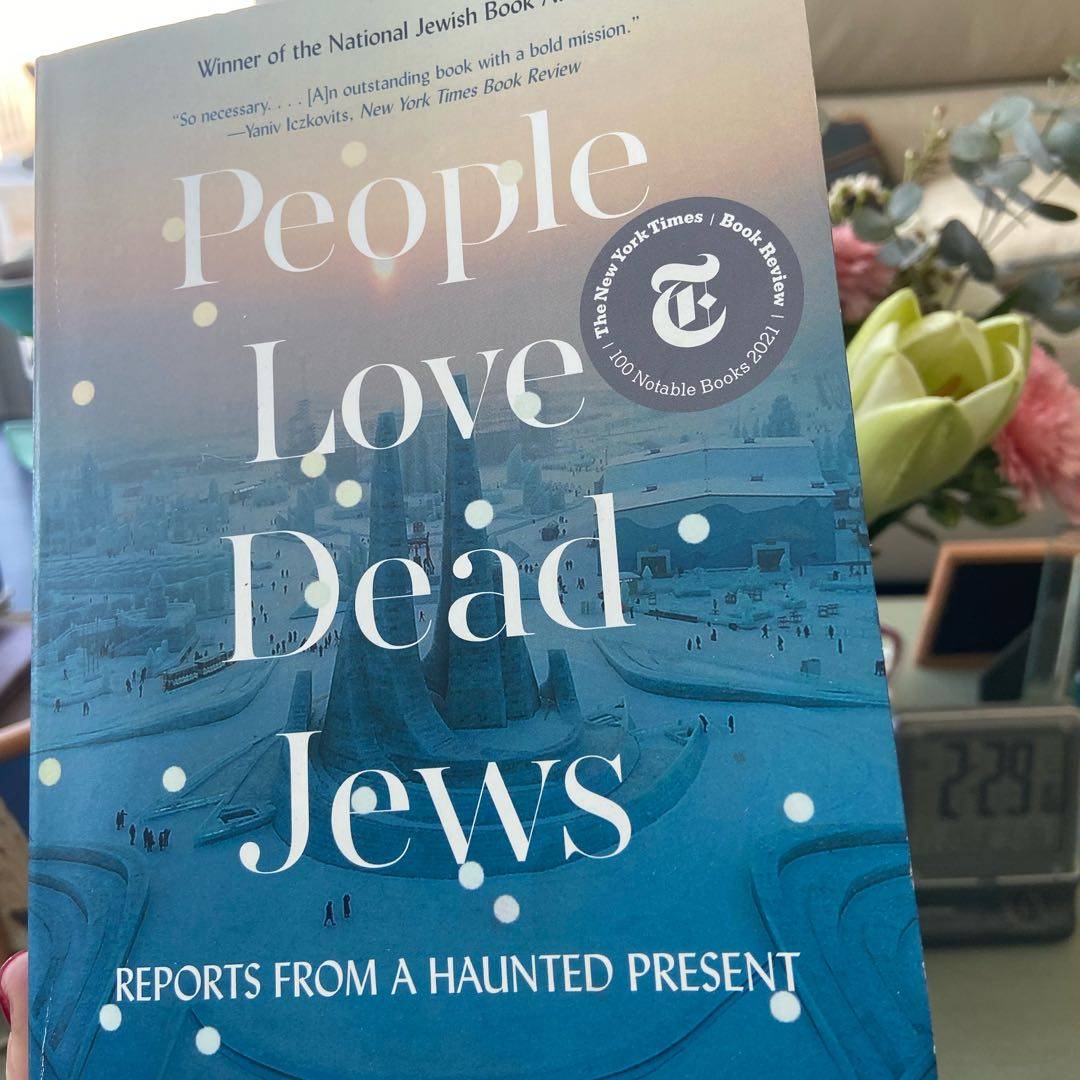
I‘m not sure this book will appeal to many, because honestly many aren‘t that interested in exploring what past & present anti-semitism looks like. Dara Horn gives numerous examples of incidents spanning centuries that have been either gaslighted, contextualized, rewritten or basically ignored. What I loved most about this book is Horn gives voice to the Jewish people to stop trying to conform or keep silent, now is the time for awakening!
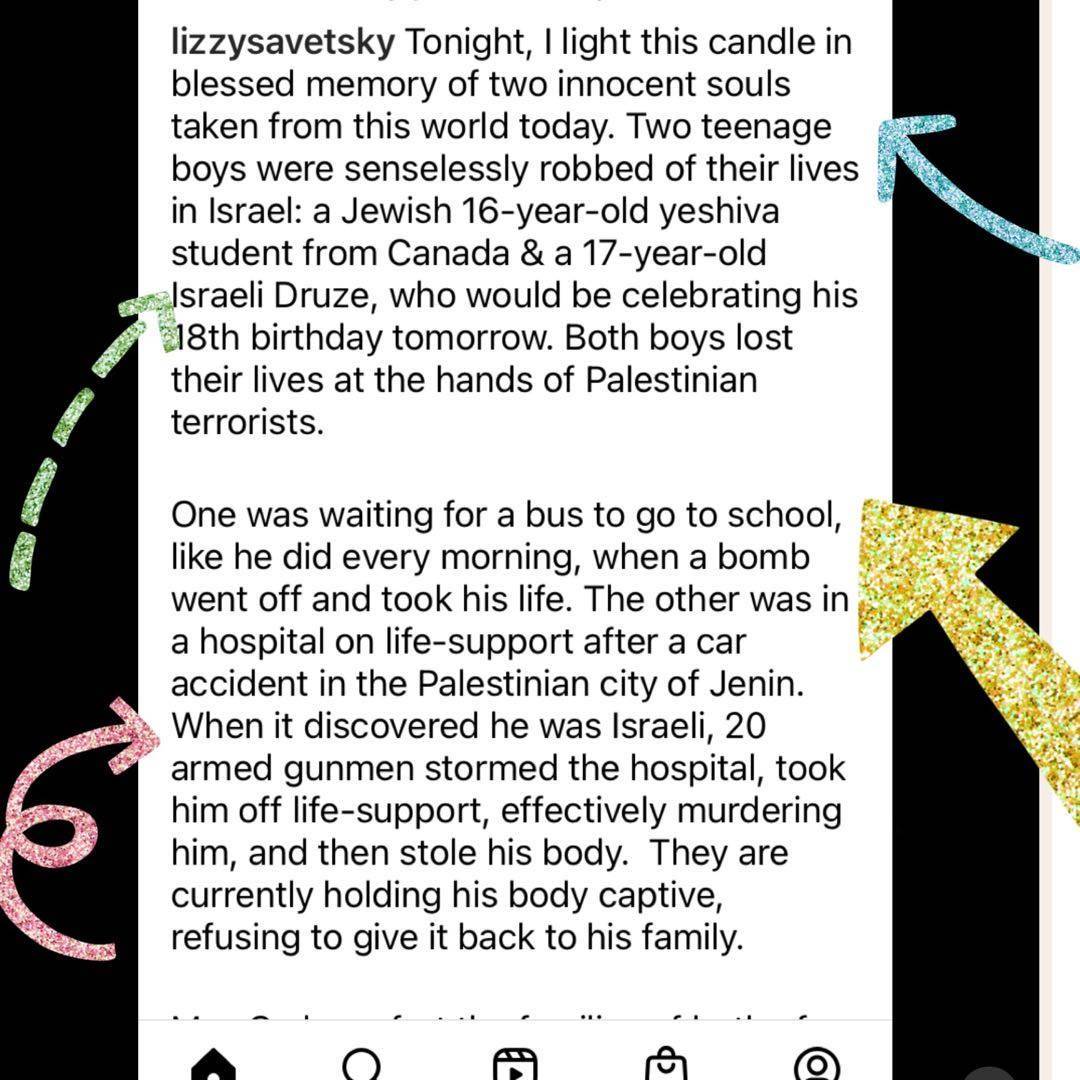
I‘m not sure this book will appeal to many and the writing is pretty scholarly but this book makes me PROUD to be linked to the Jewish people. Dara Horn is giving voice to a people who have been raised for centuries to stay silent, lay low, avoid attention, be apologetic. Yesterday 2 horrific terror attacks were carried out in Israel, 2 innocent lives were extinguished & 19 were seriously injured, yet very little media coverage was given #StopHate
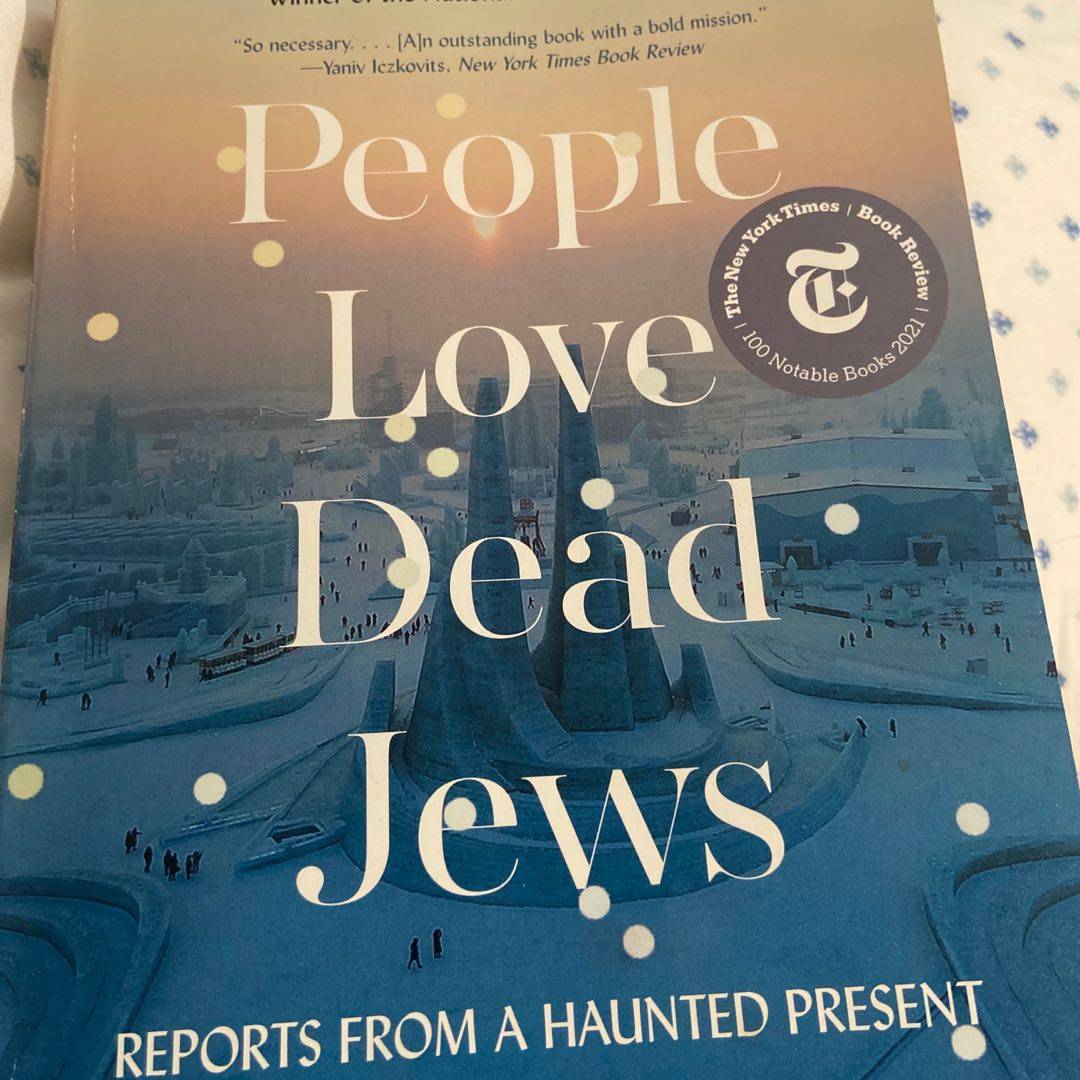
I‘m only on page 2 and my blood is already boiling 😡I really don‘t know what to say other than education is the greatest weapon. This probably isn‘t the best book to begin before bedtime- I‘m definitely going to have nightmares 😥😫
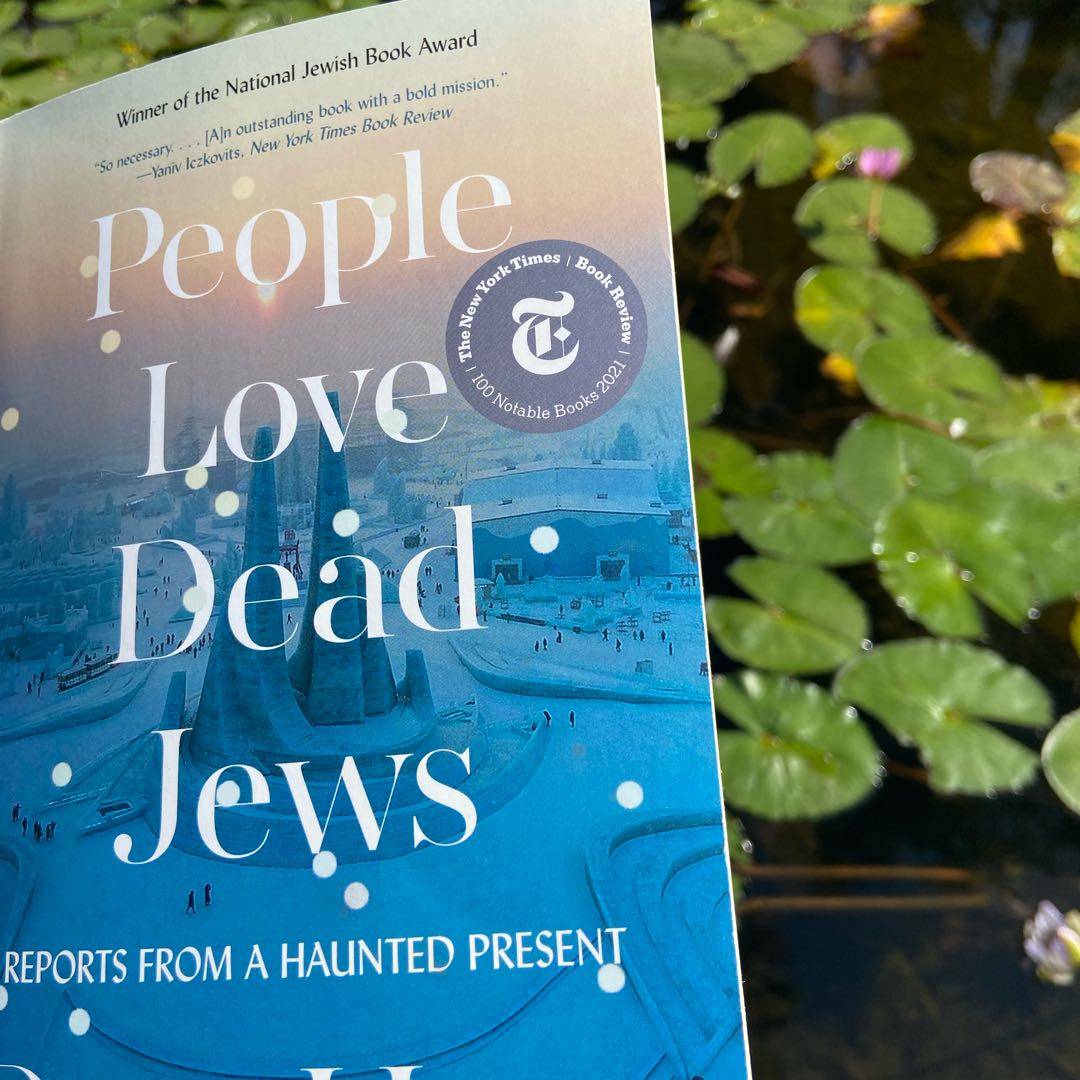
I‘ve been wanting to read this book, now MORE THAN EVER!! I was SO GLAD to find it for sale in my local library ♥️ #StopHate
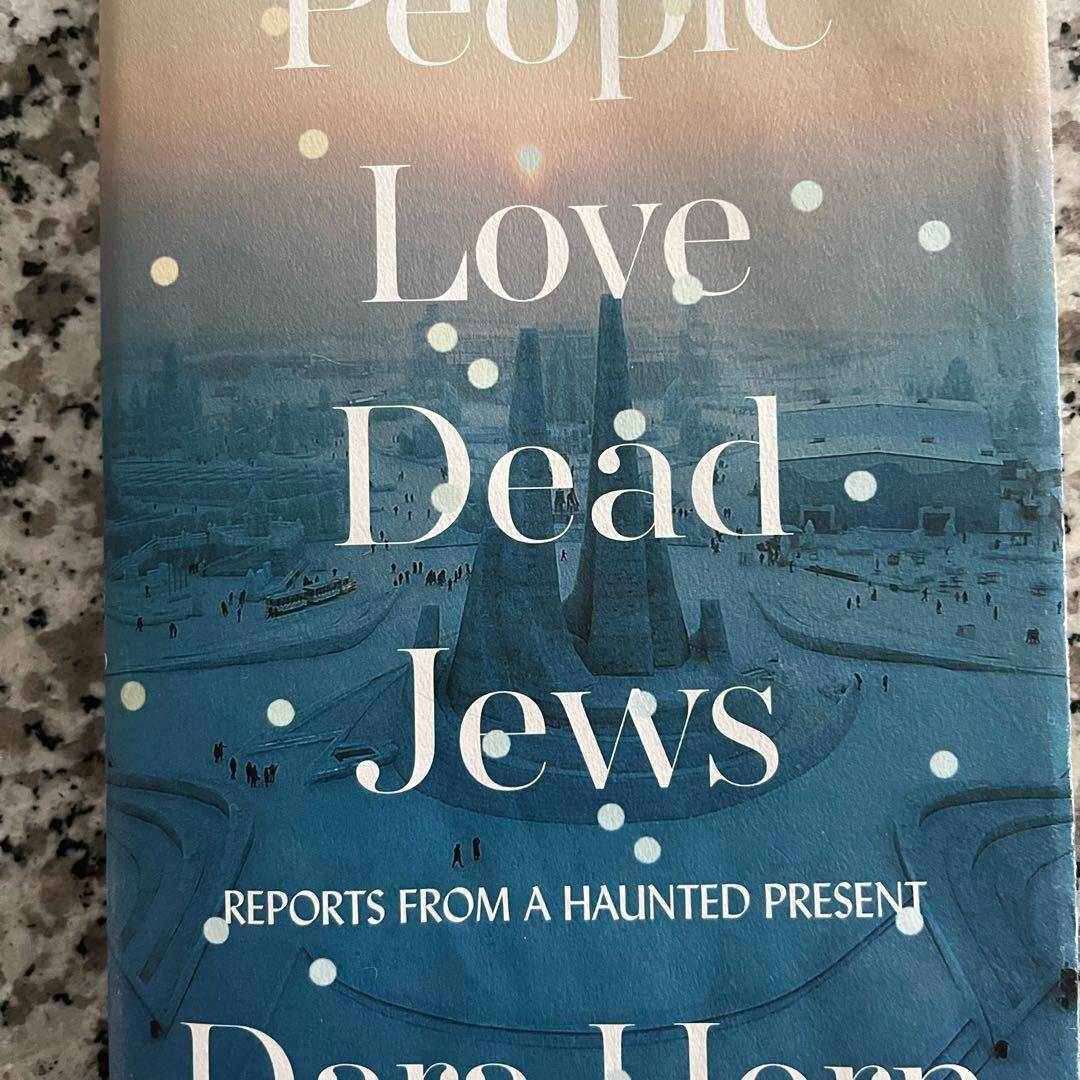
It stirs up a lot of emotions. Infuriating and deeply upsetting. Society is fascinated with the death of Jews but shows no interest in the living, thriving Jewish communities, their traditions, thoughts, literature and culture. Over the last two years I have been told that the “Talmud is a Satanic book”, “the Jews killed Jesus”, and just recently traveling in Italy that “Jews stink, are dirty and cling to their money”.
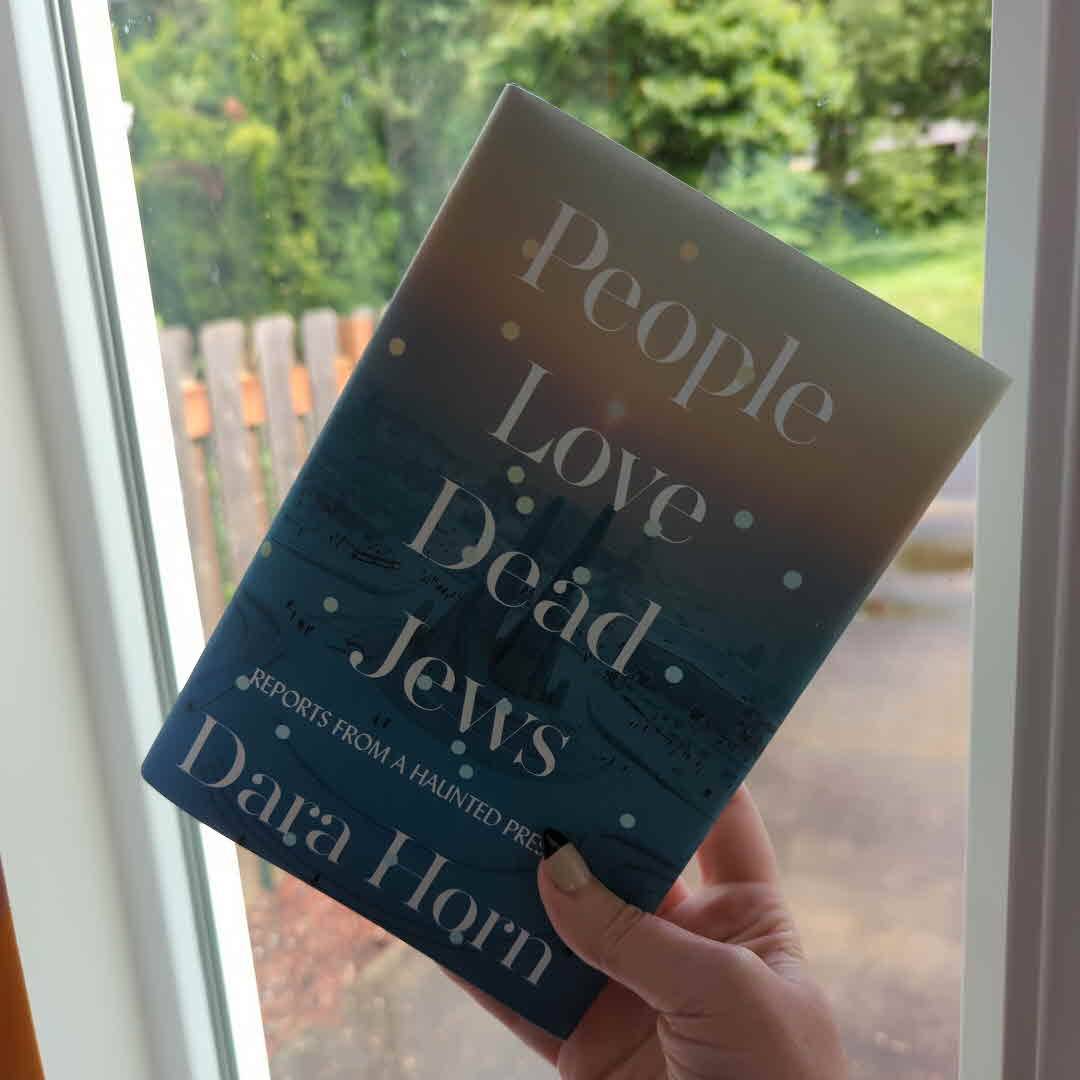
I checked this out from the library and it is so good I went to my bookstore and grabbed a copy when I was about half through. As someone who is atheist and about 10 years ago swore off WWII books, I felt I needed this, but it was so much more than I had thought. Particularly interesting (as an American) is the dismantling of the myth of renaming from Ellis Island. Each chapter is unique & special. Highly recommend.
An astonishing compendium of little known anti-semitic history that demonstrates how the common cultural narratives about Jewish people, even the most seemingly sensitive and sympathetic, do little to stop anti-semitism and might even encourage it.
I listened to the audiobook, which is fantastic. Xe Sands has an emotional resonance to her voice that was perfect for the text.
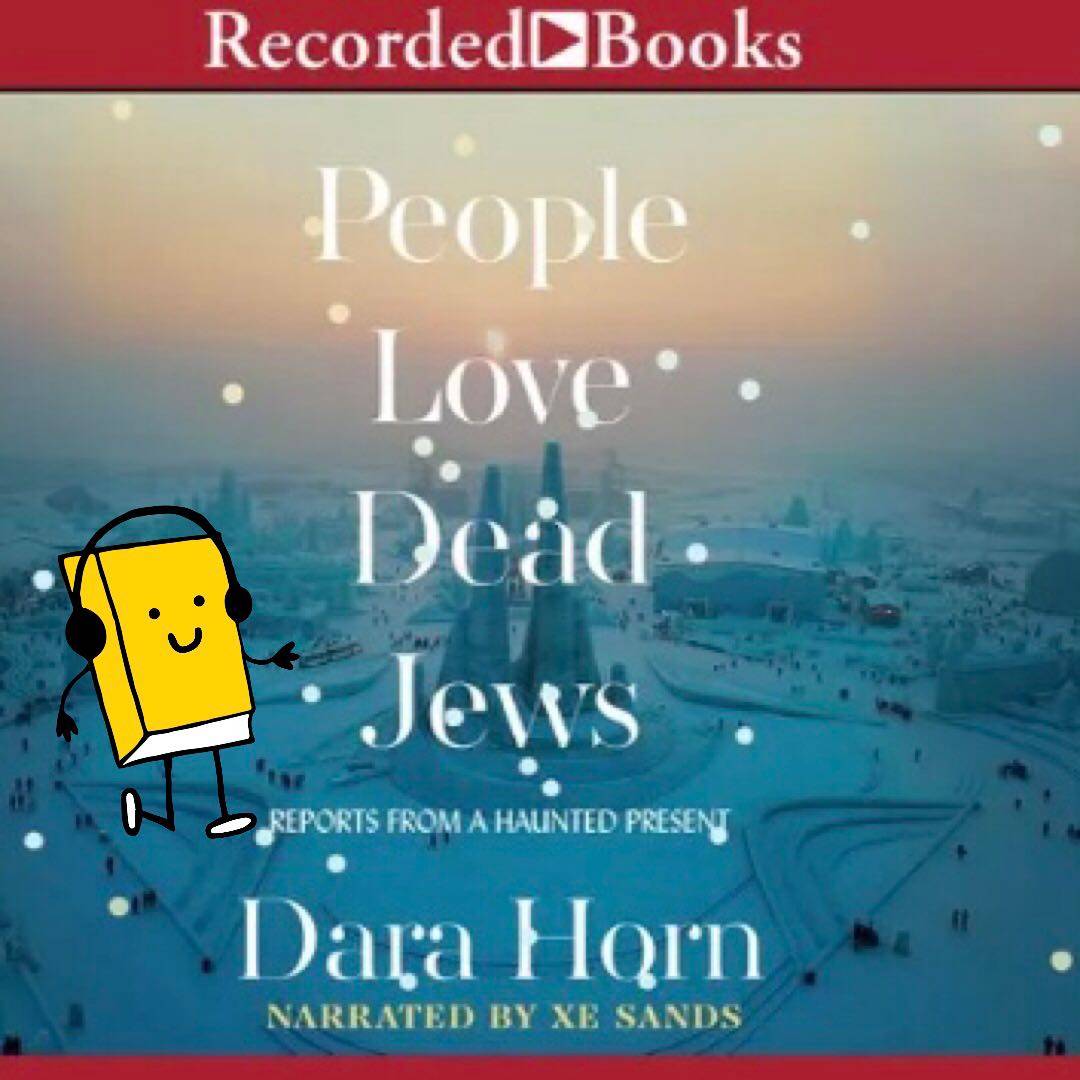
A disturbing, thought-provoking audiobook (read by Xe Sands) that “explores the many strange & sickening ways in which the world‘s affection for dead Jews shapes the present moment.” So many things surprised me, including: the history of Jews in Harbin, China; the mythology that family names were changed at Ellis Island; and what we expect from the endings in literature. I relistened to many sections before returning this library copy.
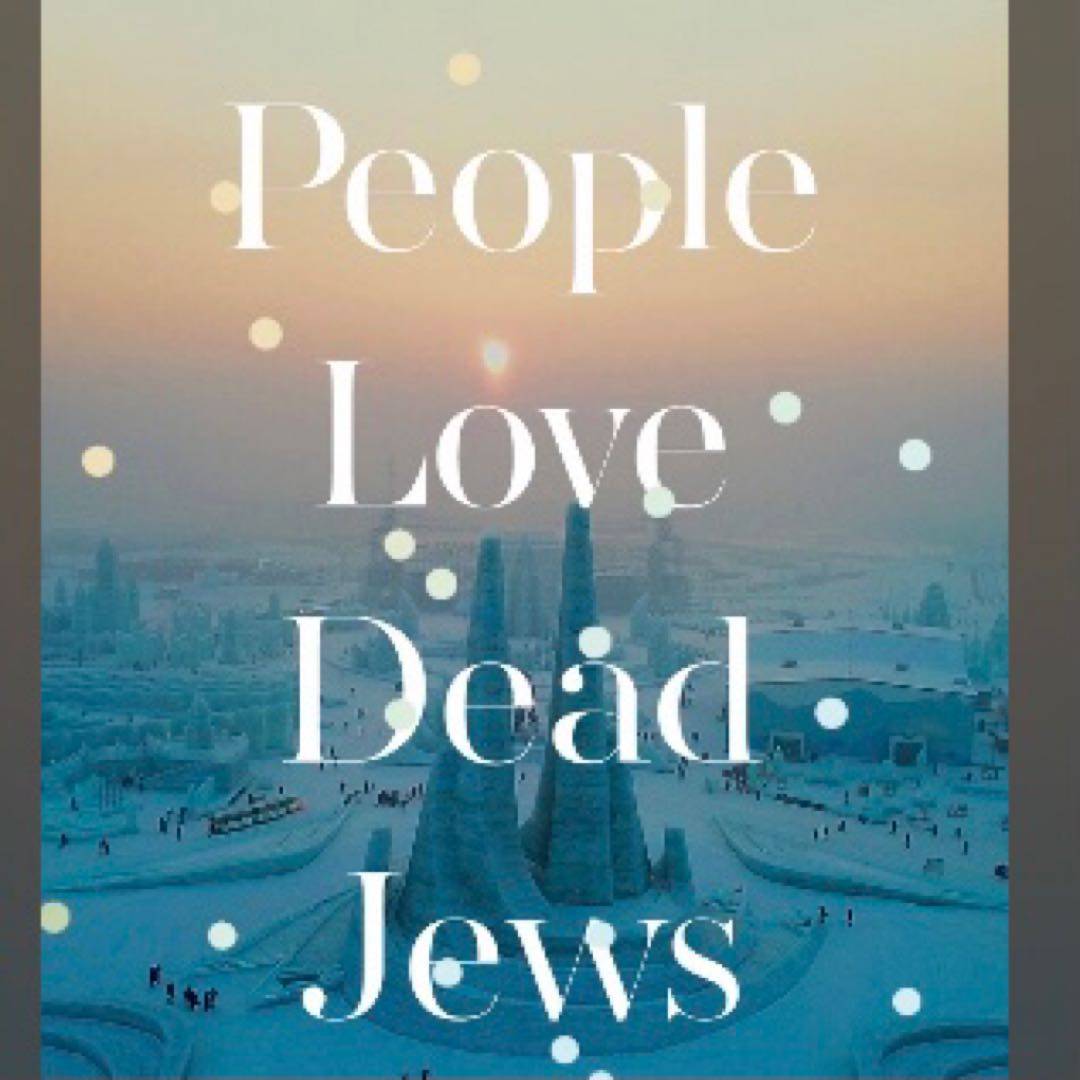
Of course Judaism has always been uncool, going back to its origins as the planet‘s only monotheism, featuring a bossy and unsexy invisible god. Uncoolness is pretty much Judaism‘s brand.
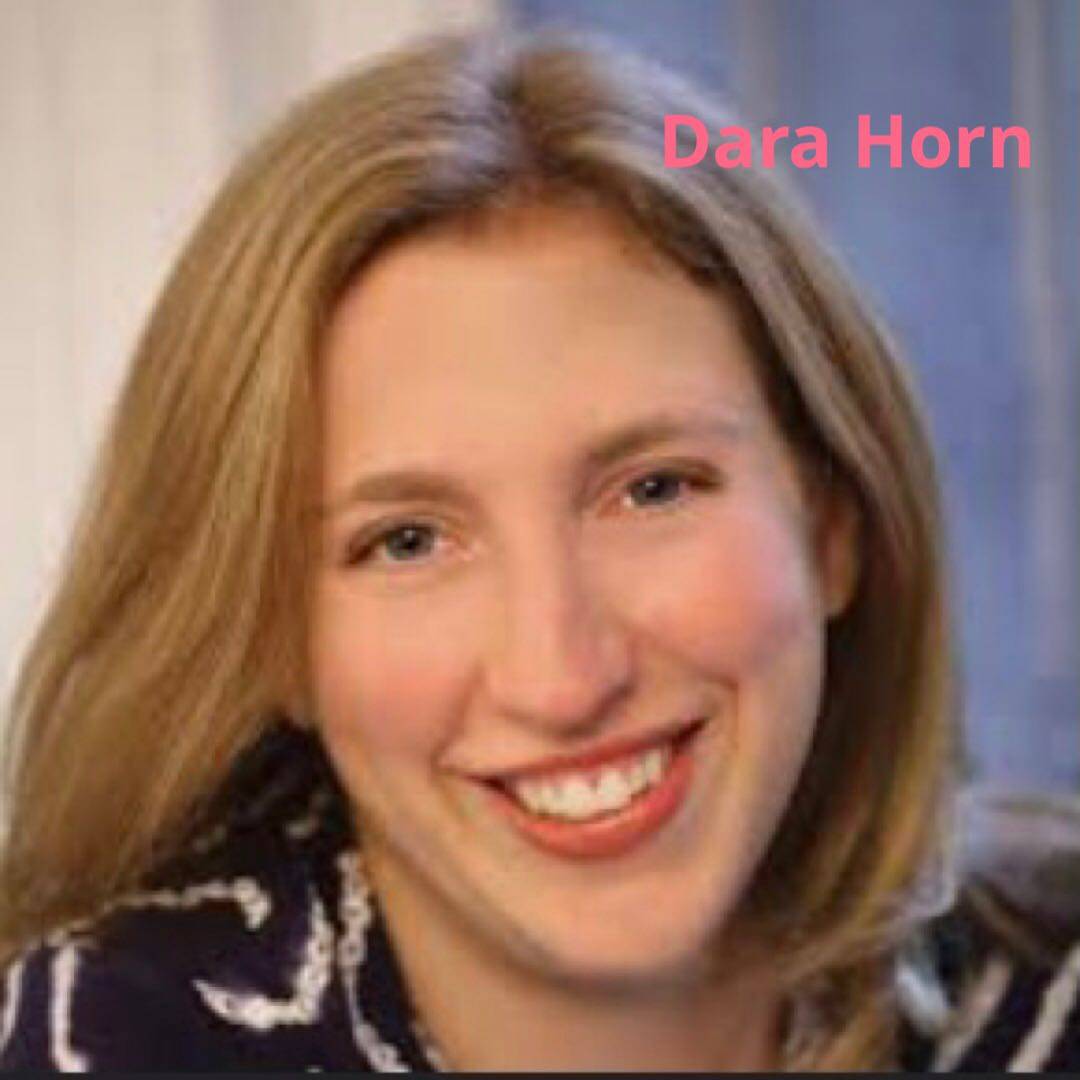
We expect the good guys to be saved. If that doesn‘t happen, we expect the main character to have an epiphany. And if that doesn‘t happen, then at least the author ought to give us a moment of grace. All 3 are Christian terms. So many of our expectations of literature are based on Christianity, & not just Christianity but the precise points on which Christianity & Judaism diverge. The canonical works in Jewish languages almost never give ⬇️

That a Jewish employee at the museum of Anne Frank was forbidden from wearing a skull cap is one of many disturbing examples that Dara Horn writes about in this long essay about contemporary antisemitism.